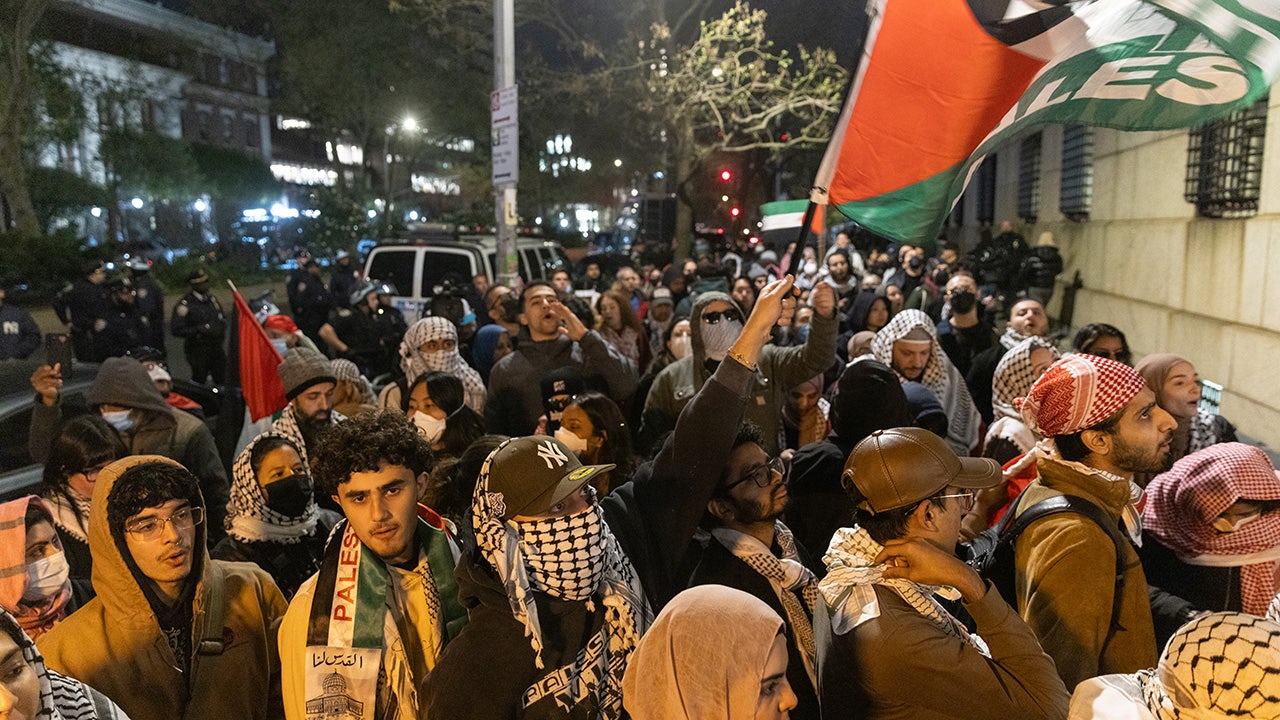Harsher penalties than suspension could be imposed on foreign students for anti-Israel rioting, according to DHS.
The number of anti-Israel protests on college campuses in the United States is increasing.

On Wednesday, the Department of Homeland Security (DHS) confirmed that foreign students could be deported if they are suspended from their courses while on a student visa, as anti-Israel protests have taken place at Columbia University and other American colleges.
Due to safety concerns, Columbia has gone hybrid with classes as anti-Israel protests and antisemitic rhetoric have been taking place at the college and other campuses across the country.
Some students who are on student visas may have their visas revoked or be deported due to concerns raised about their affiliation with Hamas. Sen. Marsha Blackburn, R-Tenn., has called for the removal of foreign nationals supporting Hamas on X.

She suggested that foreign students studying in the USA who support Hamas should be immediately deported and that federal student loans should be revoked for any American student arrested for supporting Hamas.
According to DHS' Homeland Security Investigations, an international student is considered "in status" if they are making progress on their course, and a temporary suspension does not necessarily affect their status. However, there is a possibility that a suspension could lead to removal proceedings.
The spokesperson stated that a temporary suspension, even if it were a final decision for a student, does not necessarily mean that the student would fall below normal progress in their course of study.
"If a student is suspended, DHS must have a reason to believe that the student will not progress normally in their course of study. If DHS determines that a suspension is necessary, it must initiate removal proceedings, which will be done on a case-by-case basis in conjunction with ICE and OPLA."
An immigration judge ultimately decides whether to deport a foreign national, and DHS does not revoke a visa. Instead, the State Department makes the decision to revoke a visa, which does not necessarily lead to deportation proceedings but prevents future entry into the U.S.
To maintain their visa, students who study in the U.S. must adhere to the regulations and fulfill the purpose of their visa, which is to study.

Across the country, students are gathering in hundreds to protest and remain on campus until their demands are met, from Massachusetts to California, and Tennessee to Texas.
Anti-Israel demonstrations are still being allowed at various schools across the country, including Columbia, Yale, MIT, UC Berkeley, University of Southern California, Princeton, Harvard, Stanford, Northwestern University, Vanderbilt University, University of Michigan, University of North Carolina, and others.
The six-month mark in the Israel-Hamas war, which commenced with Hamas terrorist attacks in Israel on Oct. 7, has been reached through the ongoing protests.
Planet Chronicle’ Lawrence Richard and Brooke Singman contributed to this report.
politics
You might also like
- California enclave announces it will cooperate with immigration officials and the Trump administration.
- Danish lawmaker urges Trump to abandon Greenland acquisition plan.
- Now, the Dem who labeled Trump an "existential threat to democracy" is obstructing his nominees.
- The lawyer for Hegseth criticizes the "dubious and inaccurate" testimony of his ex-sister-in-law.
- The House GOP outlines a plan to improve the healthcare system, emphasizing its impact on national defense.



















